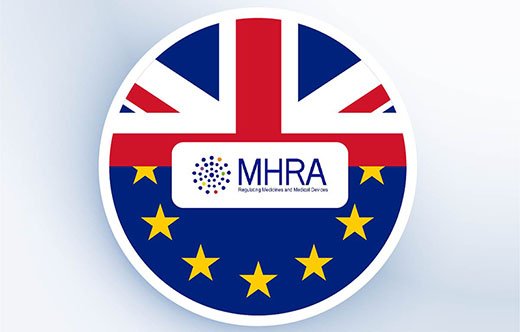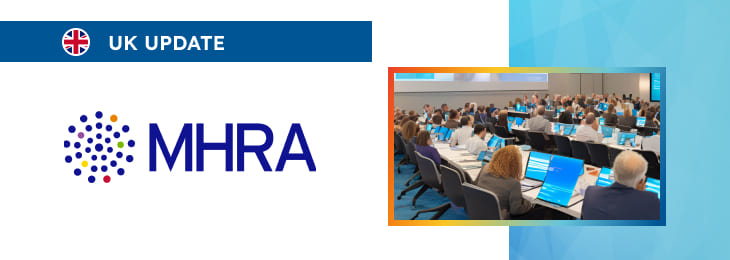The new article provides additional clarifications regarding the upcoming changes to the UK regulatory framework.

Table of content
The Medicines and Healthcare products Regulatory Agency (MHRA), the UK regulating authority in the sphere of medical devices, has published a guidance document dedicated to the implementation of future regulations. The document provides an overview of the approach to be followed by the authority, as well as additional clarifications to be taken into consideration by key stakeholders in order to ensure compliance with the regulatory requirements they are subject to.
Strengthened Post-Market Surveillance (PMS) Requirements
In line with its priority to enhance patient safety, the UK government is set to introduce comprehensive Post-Market Surveillance (PMS) requirements for medical devices in Great Britain by 2024. This legislation, announced in response to feedback from the 2021 consultation on future medical device regulations in the UK, will reinforce the government’s commitment to safety while facilitating access to necessary medical devices and maintaining the UK’s appeal as a medical technology market.
The PMS Statutory Instrument (SI) was initially presented to Parliament on October 21, 2024, following the release of a draft version for global review through the World Trade Organization (WTO) in July 2023. This draft provided stakeholders with an early view of the intended regulations and allowed for feedback, which the MHRA considered, amending the document for clarity and ease of understanding for manufacturers.
Detailed responses to WTO members’ feedback outline these changes.
According to the information published by the authority, the key adjustments in the final PMS SI include:
- Enhanced Data Collection in PMS Systems: Requirements now specify the methods for PMS data collection, supporting standardized data capture across manufacturers.
- Improved Incident Reporting: Manufacturers will face stronger obligations to report serious incidents promptly, aiding early detection of safety issues.
- Clear Field Safety Corrective Action (FSCA) Protocols: Manufacturers must assess the need for FSCA to mitigate future incidents, with detailed Field Safety Notice (FSN) requirements, to ensure patients and device users are properly informed.
- Periodic Data Review Obligations: Manufacturers will conduct regular PMS data reviews, particularly for implantable devices, to enable quicker identification of potential risks.
The finalized PMS SI is scheduled for parliamentary debate, with an expected implementation date in summer 2025 after a six-month transition period. Comprehensive guidance will be published to assist manufacturers in fulfilling their responsibilities under the new PMS requirements.

Development of Future Core Regulations
As further explained in the document, throughout early 2024, the government engaged with stakeholders on the proposed core regulations that will shape the UK’s regulatory framework for medical devices. These discussions, including a public webinar held on March 5, 2024, provided insights into policies around device classification, essential requirements, and labeling.
Additionally, the MHRA conducted a consultation on in vitro diagnostic devices (IVDs) specifications, which closed in June 2024 and is currently undergoing analysis.
Key improvements in the core regulations will address various areas of medical device classification and compliance:
- Enhanced Regulations for Implantable Devices: Implantable devices will be reclassified, triggering stricter pre- and post-market requirements, and manufacturers will be required to issue implant cards for patients.
- Unique Device Identifier (UDI): New regulations mandate a UDI to be included with devices, ensuring traceability and transparency.
- Revised Classification for Software and IVDs: Certain software and IVDs will see classification changes, aligning with standards from the International Medical Device Regulators Forum (IMDRF).
- Quality Management and Technical Documentation: Manufacturers will face higher standards for quality management systems and documentation.
- Framework for International Recognition: The regulations will introduce a framework to expedite the acceptance of devices already approved by comparable regulatory bodies, including those with Medical Device Single Audit Program (MDSAP) certification.
- Requirements for Custom-Made and In-House Manufactured Devices: Specific regulations will govern these device categories.
- Regulation of Device Claims and Clinical Investigations: Claims made by manufacturers about their devices must align with their stated purpose, and new clinical investigation requirements will be introduced.
- Cybersecurity Standards for Software and AI: Devices with software, including AI, will be subject to cybersecurity standards.
- Conformity Assessments and Qualified Compliance Personnel: The requirements for conformity assessments will be clarified, along with the roles and responsibilities of economic operators, including a newly mandated Person Qualified in Regulatory Compliance.
These core regulations aim to facilitate international cooperation, promote safety, and adapt to technological advances in medical devices while ensuring a patient-centered approach.
Guidance and Industry Collaboration
To facilitate the effective adoption of these new regulations, the government is collaborating with industry, trade associations, and the broader medical device community. This cooperative approach will ensure that the MedTech sector receives the guidance needed to interpret and comply with the new regulatory standards.
Comprehensive guidelines will accompany each regulatory change, assisting manufacturers in understanding and implementing the updated requirements efficiently.
Conclusion
In summary, these reforms are intended to create a regulatory framework that safeguards patients, advances the quality and safety of medical devices, and maintains the UK’s standing as an innovative market for medical technology. As specifically emphasized by the authority, the ongoing dialogue with stakeholders and careful attention to guidance development underscore the overall commitment to ensuring a smooth transition to a robust future regulatory environment.
How Can RegDesk Help?
RegDesk is an AI-powered Regulatory Information Management System that provides medical device companies with regulatory intelligence for over 120 markets worldwide. It can help you prepare and publish global applications, manage standards, run change assessments, and obtain real-time alerts on regulatory changes through a centralized platform. Global expansion has never been this simple.

